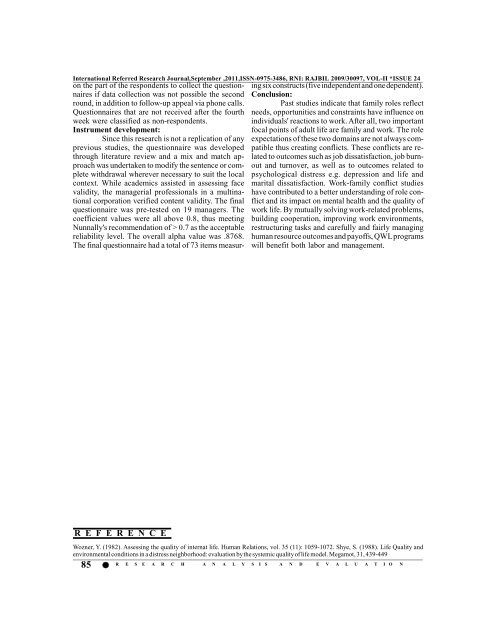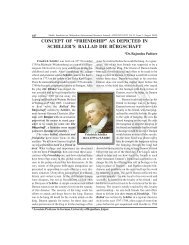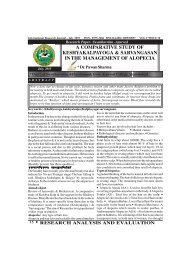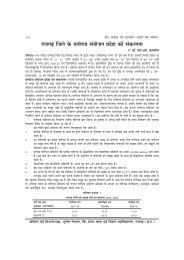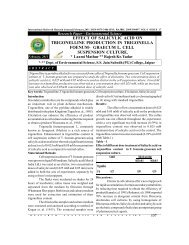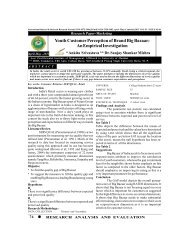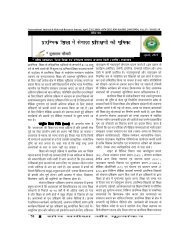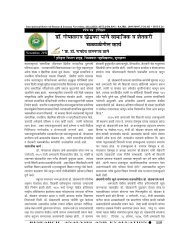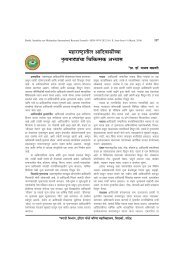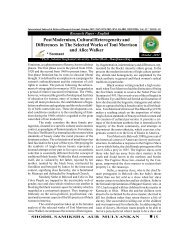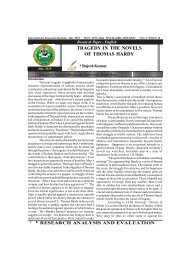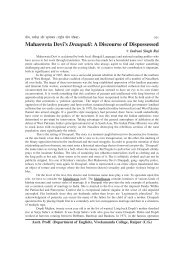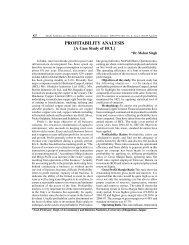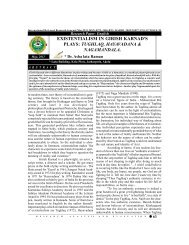Implications of Career Dimensions Quality of Work Life
Implications of Career Dimensions Quality of Work Life
Implications of Career Dimensions Quality of Work Life
You also want an ePaper? Increase the reach of your titles
YUMPU automatically turns print PDFs into web optimized ePapers that Google loves.
International Referred Research Journal,September ,2011,ISSN-0975-3486, RNI: RAJBIL 2009/30097, VOL-II *ISSUE 24<br />
on the part <strong>of</strong> the respondents to collect the questionnaires<br />
if data collection was not possible the second<br />
round, in addition to follow-up appeal via phone calls.<br />
Questionnaires that are not received after the fourth<br />
week were classified as non-respondents.<br />
Instrument development:<br />
Since this research is not a replication <strong>of</strong> any<br />
previous studies, the questionnaire was developed<br />
through literature review and a mix and match approach<br />
was undertaken to modify the sentence or complete<br />
withdrawal wherever necessary to suit the local<br />
context. While academics assisted in assessing face<br />
validity, the managerial pr<strong>of</strong>essionals in a multinational<br />
corporation verified content validity. The final<br />
questionnaire was pre-tested on 19 managers. The<br />
coefficient values were all above 0.8, thus meeting<br />
Nunnally's recommendation <strong>of</strong> > 0.7 as the acceptable<br />
reliability level. The overall alpha value was .8768.<br />
The final questionnaire had a total <strong>of</strong> 73 items measuring<br />
six constructs (five independent and onedependent).<br />
Conclusion:<br />
Past studies indicate that family roles reflect<br />
needs, opportunities and constraints have influence on<br />
individuals' reactions to work. After all, two important<br />
focal points <strong>of</strong> adult life are family and work. The role<br />
expectations <strong>of</strong> these two domains are not always compatible<br />
thus creating conflicts. These conflicts are related<br />
to outcomes such as job dissatisfaction, job burnout<br />
and turnover, as well as to outcomes related to<br />
psychological distress e.g. depression and life and<br />
marital dissatisfaction. <strong>Work</strong>-family conflict studies<br />
have contributed to a better understanding <strong>of</strong> role conflict<br />
and its impact on mental health and the quality <strong>of</strong><br />
work life. By mutually solving work-related problems,<br />
building cooperation, improving work environments,<br />
restructuring tasks and carefully and fairly managing<br />
human resource outcomes and pay<strong>of</strong>fs, QWL programs<br />
will benefit both labor and management.<br />
R E F E R E N C E<br />
Wozner, Y. (1982). Assessing the quality <strong>of</strong> internat life. Human Relations, vol. 35 (11): 1059-1072. Shye, S. (1988). <strong>Life</strong> <strong>Quality</strong> and<br />
environmental conditions in a distress neighborhood: evaluation by the systemic quality <strong>of</strong> life model. Megamot, 31, 439-449<br />
85<br />
R E S E A R C H A N A L Y S I S A N D E V A L U A T I O N


